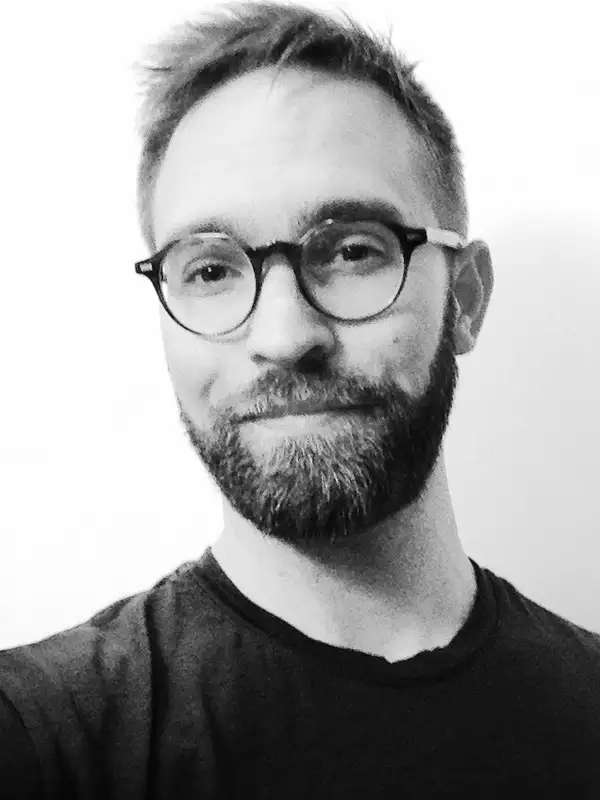
Seth Stewart Williams
Department
Dance, Medieval & Renaissance Studies
Office
Office Hours
Contact
Seth Stewart Williams studies the interrelation of dance and literature, especially in the sixteenth and seventeenth centuries. An expert in European dance notation systems of the fifteenth through eighteenth centuries, his work as a historian of dance and theater extends from early modern England to contemporary America. His research and teaching interests include the history and theory of dance and theater; dance in the plays of Shakespeare and his contemporaries; book history, performance theory, and narrative theory; dance and theories of rights and race; embodiments of lyric verse; and animation. In addition to his appointment in dance studies, Williams is an affiliate of the English department and of the Medieval and Renaissance Studies Program at Barnard, and of the Ph.D. program in Theatre and the Medieval and Renaissance Studies Program at Columbia.
He is currently at work on a monograph entitled Virtual Motion: Choreographic Thinking in Early Modern English Literature, which studies the use of dance to both embody and figure processes of political upheaval in which patterns of exchange and migration predominate, from the spread of new religious denominations, to colonization of the New World, to the emergence of political factions across the British Civil War. Support of this project includes a 2019-20 Long-term Fellowship from the Folger Shakespeare Library, and fellowships from Columbia University's Heyman Center for the Humanities and from New York University's Center for Ballet and the Arts. Williams has been a Scholar-in-Residence of the Jacob's Pillow Dance Festival since the 2019 season, giving public talks to situate the Festival's programming in its cultural and historical contexts.
During his performance career, Williams worked extensively with Sean Curran and Donald McKayle, whose choreography he has set, and was for several years a supplemental dancer to the Mark Morris Dance Group. As a member of The New York Baroque Dance Company, he reconstructed early ballets from Feuillet notation.
Williams received his Ph.D., M.Phil., and M.A. in English literature from Columbia University, and bachelor's degrees in dance and comparative literature from the University of California at Irvine. He joined the Barnard faculty in 2017.
- Ph.D., M.Phil., and M.A. English Literature, Columbia University
- B.A., Dance, B.A., Comparative Literature, University of California at Irvine
- Dance history and theory
- Renaissance literature
- Performance studies
- Book history
- Narrative theory
- Shakespeare
Lecture Courses
- DNCE 2565: World Dance History
- DNCE 3000: From Page to Stage: Interactions of Literature and Choreography
- DNCE 3001: Western Theatrical Dance from the Renaissance to the 1960s
- DNCE 3002: Choreographing Race in America
- DNCE 3580: History of Social Dancing: Dance Crazes from the Waltz to Flash Mobs
Seminar Courses
- DNCE 3591: Senior Seminar in Dance
- Dance Studies Association
- Shakespeare Association of America
- Renaissance Society of America
- American Society of Theatre Research
Upcoming:
“Choreography as Chorography in Early Modern England.” Lebenzhal Lectures in the History of Cartography, Newberry Library, November 3-5, 2022.
Past:
"Bad Imitation: Dancing Virgilian Verse at the English College in Rome." Shakespeare Association of America. Jacksonville, 2022.
“Choreographic Partisanship: Country Dance in Early and Late Modern Party Politics.” Theater and Performance Colloquium, Harvard University, 2021.
"Choreographies of Magnification." Dance Studies Association, New Brunswick, 2021.
“Shakespeare’s Disgraceful Hands.” Shakespeare Seminar, a University Seminar of Columbia University, 2020.
"The Short Script: Forms of and Formulas for Action." Seminar leader, Shakespeare Association of America, Denver/remote, 2020.
"'The Country-Round': Dance, Race, and the Emergence of England's Political Parties." Group for Early Modern Studies and THALIA, University of Ghent, 2019.
"Science Fiction Choreography as a Proleptic Technology." Dance Studies Association, Chicago, 2019.
"Print as Motion Capture." Center for Renaissance Studies, Newberry Library. April 5, 2019.
"'The Country-Round': Dance, Race, and the Emergence of England's Political Parties." Stony Brook University Humanities Institute, 2019.
"The Queer Faith of English Recusants." Working group on "Arousing the Bodies of Pre-1850 Performance" at the American Society for Theatre Research. San Diego, 2018.
"Equivocal Bodies: English Recusants, Gesture, and Dance” at Truth and Truthiness: Belief, Authenticity, Rhetoric and Spin in the Middle Ages and Renaissance. Barnard College of Columbia University, 2018.
"Gestural Excess and the Hypergesture of Satire." Shakespeare Association of America, Los Angeles, 2018.
"Race as Historiography: 'Gypsy' Dance in Seventeeth-Century English Manuscripts." Dance Studies Association, Columbus, 2017.
"Danced Verse and Temporal Vagrancy." Shakespeare Association of America, Atlanta, 2017.
"Highland Scots, Virginian Indians, and the ‘Savage’ Dances of Colonial Virginia." Society of Dance History Scholars / Congress on Research in Dance, Pomona, 2016.
“Choreographing Conquest: William Davenant and the Motions of History.” Shakespeare Association of America, New Orleans, 2016.
“Disturbed Sport: Shakespeare and Sexual Violence.” City College of New York, 2016.
“Colonizing Dances: New World Dance on the Early Modern English Stage,” Society of Dance History Scholars / Congress on Research in Dance, Athens, Greece, 2015.
“Edmund Spenser’s Kinetic Verse.” Shakespeare Association of America, Vancouver, Canada, 2015.
“Zarabandas from Mexico City to London." Guest lecture, New York University, 2015.
“Molière and Baroque Choreography.” Guest lecture, The New School, 2015.
“Narratology and 'Pure Dance' in Balanchine, Cunningham, and Morris." Unscripted: A Symposium on the Study of Performance, Columbia University, 2013.
"The Dance of Death in A Larum for London." Early Modern Violence conference, University of Michigan, 2013.
“How Lully Choreographed the Fronde Rebellion.” Guest lecture, Columbia University, 2011.
Publications:
"[They Dance]: Collaborative Authorship and Dance in Macbeth,” in The Oxford Handbook of Shakespeare and Dance, eds. Lynsey McCulloch and Brandon Shaw (New York: Oxford University Press, 2019)
"Mark Morris, Musician," in the curated essay series Men in Dance, ed. Sydney Skybetter (Jacob's Pillow Interactive, 2019)
"Review Essay: Jacques Rancière, Aisthesis: Scenes from the Aesthetic Regime in Art (London: Verso, 2013), and Gabriele Brandstetter and Gabriele Klein, eds. Dance [and] Theory (Bielefeld: Transcript-Verlag, 2013)." Dance Research Journal 47.1 (2015): 96-101.
"Review Essay: Karen Eliot and Melanie Bales, eds. Dance on Its Own Terms: Histories and Methodologies (Oxford University Press, 2013)." Dance Research Journal 46.1 (2014): 155-160.